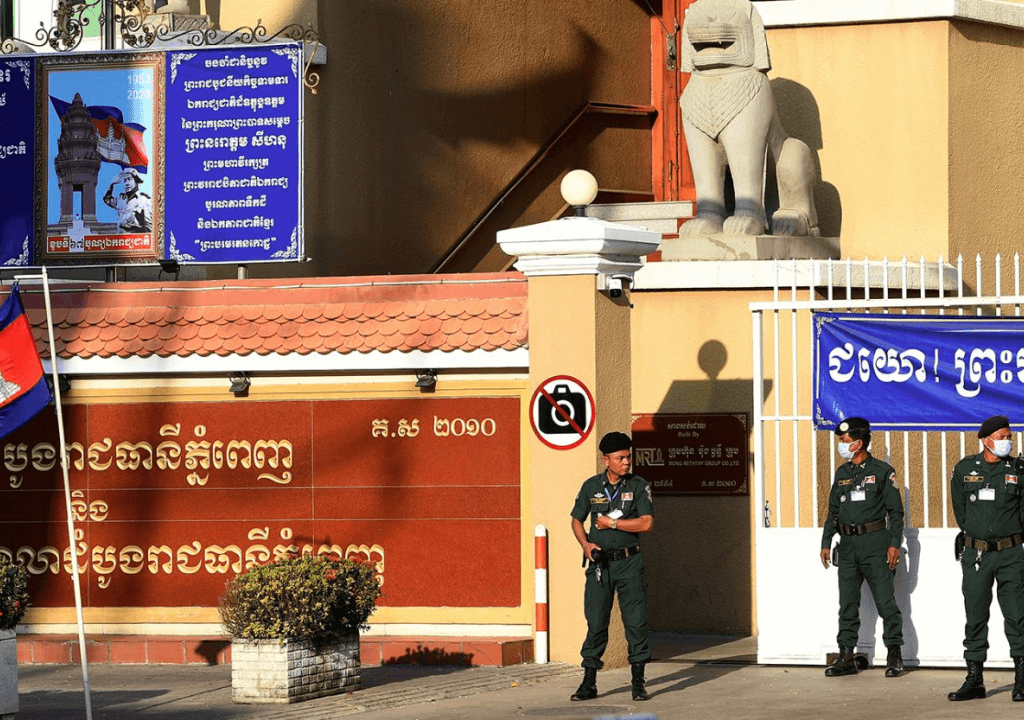Environmentalists don’t hold the same old reputation or importance as far-right groups, which have captured the public sphere. They are often targeted as anti-nationalists or individuals opposed to national progress. This phenomenon is visible worldwide, and in authoritarian countries, they are undoubtedly one of the prime targets of the rulers. Cambodia, a Southeast Asian country with the worst phase of democracy, is seeking infrastructure development with Chinese funds and is among those countries.
Even though the state is a constitutional monarchy, elections are highly manipulated, and opposition parties are severely weakened. Last year, former military general, Prime Minister, and ongoing President Hun Sen, who had tightly controlled the country for decades from different positions, handed power to his son Hun Manet. Hun Manet was named Prime Minister after an election in which the only major opposition party was banned from contesting, and independent media outlets and criticisms were closed down or blocked online. This is the reality of Cambodian democracy, and now they have found a new opposition in environmentalists, whom they have also begun to target.
On Tuesday, Ten activists from a prominent environmental group named Mother Nature in Cambodia were sentenced to between six and eight years in jail. Four of the defendants were arrested outside the court in the capital city, Phnom Penh, after the verdict was delivered on Tuesday morning. Others were sentenced in absentia. In a place where people are arrested for protests, an absentia court does not block sentencing. The charges in the case are intriguing; they were found guilty of plotting against the government, while three were also convicted of insulting the king (Lèse-majesté).
Among those sentenced on Tuesday were Thun Ratha, Long Kunthea, Phuon Keoraksmey, Binh Piseth, and Pork Khoeuy, who received six years in prison for plotting, according to Amnesty International. Three others, Gonzalez-Davidson, Sun Ratha, and Yim Leanghy, were sentenced to eight years for both plotting and insulting the king, and also face a fine of KHR 10,000,000 (£1,900). The convicted individuals denied the charges.
Mother Nature, one of the few remaining environmental groups in Cambodia, has gained a presence among youth through its use of viral videos and training programs to engage young Cambodians. As freedom of expression has become increasingly restricted, many Mother Nature activists have faced imprisonment and intimidation. Despite this, the group’s activities have garnered global support and recognition. In 2023, Mother Nature earned the Right Livelihood Award from the Swedish charity, the Right Livelihood Award Foundation, for its fearless and engaging activism. This recognition alone is enough to provoke discontent from the authorities.
The group recently gained acclaim for successfully campaigning against the Chinese-led construction of a hydroelectric dam in Areng Valley, southwestern Cambodia, which posed threats to an indigenous community and rare species. They also played a crucial role in ending the environmentally damaging and often corrupt practice of sand export from the coastal estuaries of Koh Kong. These actions have led to the group being marked as opposing the country’s ambitious projects and progress and being labeled as anti-national. Regarding the accusations, Alejandro Gonzalez-Davidson, the group’s founder and a Spanish national deported from Cambodia in 2015, told Reuters that the claims of plotting against the state were never clarified in court.
It looks like Cambodia doesn’t mind its reputation, even though it has an interest in tourism. The country is notorious for corruption, with Transparency International’s Corruption Perceptions Index (2021) ranking Cambodia 157th out of 180 countries, one of the worst in the continent. Yet, in the July 2023 election, the ruling Cambodian People’s Party (CPP) easily won by a landslide in a flawed election. Following the election, Hun Manet, son of Hun Sen, was sworn in as the new Cambodian prime minister. However, this change in leadership does not signify any real change in governance. The recent crackdown on environmentalists deals a severe blow to Cambodia’s civil society, as the government opts to imprison dissenters rather than heed the voices of young environmental leaders. It’s clear that Cambodia’s leadership is not only targeting environmentalists but also any opposition.








